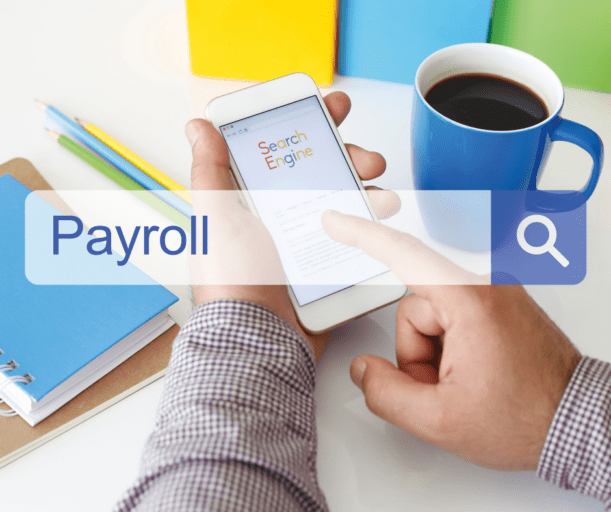Thought payroll tax was relatively straightforward? Think again. Payroll, in terms of taxation, can mean many different things, which makes it a key tax topic.
We’re often asked questions which have multiple different meanings, depending on the level of experience of the person asking. The following three aspects of payroll sound similar but are all actually very different;
- Payroll Tax,
- Tax deductions related to payroll
- What needs to be deducted from an employee’s pay and how do you calculate this?
To make things as clear as possible, let’s tackle this one topic at a time.
About Payroll Tax
Firstly, it’s important to grasp the fundamentals of what payroll tax actually is. Payroll tax is defined by the Australian Revenue Office as:
“A self-assessed, general purpose state and territory tax assessed on wages paid or payable by an employer to its employees, when the total wage bill of an employer (or group of employers) exceeds a threshold amount”.
The payroll tax rates and thresholds vary between states and territories. For NSW the threshold is $1,200,000 for the 20/21 financial year, and the rate is 4.85% on all wages above this threshold. So, if your wage costs for the year are $1,300,000 you will be liable for NSW payroll tax of 4.85% of $100,000 ($1,300,000-$1,200,000) or $4,850 for the year.
Tax Returns are lodged, and payment of liability is made at an agreed frequency (monthly, quarterly, or annually). This is paid to the respective revenue office in the Australian state and/or territory in which the wage payment is deemed liable.
Payroll Tax is the most contentious tax in Australia, and heavily debated on its merits. Essentially, it’s a tax on employing people and goes against leavers of growing our economy and employment. On the other hand however, the revenue it generates is highly relied upon by the states and unlikely to be removed at this stage. Knowing what elements include tax deductibility, exemptions and write-offs is important.
Tax deductions related to payroll
We often get asked “is payroll tax deductible?”As a business owner, you can generally claim a tax deduction for:
- The salaries and wages you pay to employees
- Super contributions you make on time to a complying super fund or retirement savings account (RSA) for your employees and for certain contractors.
That being said, there are a number of other payroll deductions and write-offs that can be claimed. For instance, costs incurred on staff in gaining assessable income are also deductible and include:
- Training costs
- Payroll Taxes
- Staff amenities
- Some small gifts or rewards on a one-off occasion under $200
- Workers compensation
If you’re a sole trader, you can usually claim a deduction for your own super contributions in your personal income tax return, as well as all the above costs you incur for any employees.
There are also major expenses that need to be considered. Wages, salaries and superannuation are the big ones, so let’s explore these three major expenses in more detail, as there are a number of factors we need to be aware of.
Salaries and wages
As the business owner, the deductions you can claim depend on the type of business you operate.
- Sole Trader: If you operate as a sole trader, you are the business owner and not an employee of your business, therefore you can’t pay yourself a salary or wage. Any payment of a salary or wage to you is considered a distribution of profit, rather than a wage.
- Partnerships: If your business operates as a partnership, the partnership can’t pay you salary or wages as you are a partner, rather than an employee. Any payment of a salary or wages to a partner is considered a distribution of profit as well.
- Company or Trust: If your business operates under a company or trust, your company or trust is a separate legal entity from yourself, and it can generally claim a deduction for any salaries and wages paid to you and any other workers you may employ.
- Contractor: If you engage a contractor to complete a service for your business, you may be able to claim the amount you pay them as a deduction, as you are hiring them to provide professional services.
Generally, to be able to claim a deduction for the payments you make to your workers and employees, you must first comply with the pay as you go withholding (PAYGW) and reporting obligations for each payment run.
Is your worker an employee or a contractor?
If you’re looking to determine whether or not your worker is classes as an “employee” or a “contractor”, then the ATO has this handy tool for working it out.
It’s worth noting that a High Court ruling earlier in 2022 may have an impact in the future about this relationship with your workers, so it’s important to ensure you check the ATO regularly to ensure you’re meeting your obligations towards your employees and contractors.
There are some situations where a worker is always considered an employee, including apprentices, trainees, laborers and trades assistants. They can be full-time, part-time or school based. In the vast majority of cases, they are paid according to an award and receive a specific wage or salary and working conditions. The tax and super obligations for these employees are the same as others.
In the case of hiring a company, trust or partnership to carry out work for you, they are always considered contractors. This is because to be considered an “employee” you must be a person. While the people that do the work for you may be directors, partners or employees of the contractor, they’re not your employees.
If you hired a worker through a labour hire company, recruitment services company or a group training organisation and pay that company for the work that is undertaken at your business, your business has a contract with the labour hire company and they are responsible for PAYG withholding, superannuation and FTB obligations, not you.
If you’ve hired an individual person, the details within your contract with them or the working agreement will determine whether of not they’re a contractor or employee for taxation and superannuation purposes. In this case, the contract can be either written or verbal.
Super contributions for your workers
Superannuation, or super for short, is money that you as an employer are required to contribute towards your workers’ financial needs in retirement. Recently, the superannuation guarantee, or the percentage amount of your worker’s wage that you need to contribute to their super fund has increased to 10.5%. The superannuation you contribute to your employees fund is generally invested, as to help grow the fund’s amount to ensure that your workers can live comfortably in retirement.
The good news is that you can claim a deduction for super contributions you make on time to a complying super fund or retirement savings account (RSA) for all of your employees and for certain contractors.
The minimum you must pay into each of your employees superannuation is called the super guarantee (SG), and is managed in the following way:
- The SG is currently 10.5% of an employee’s ordinary time earnings
- You must pay the SG at least four times a year, by the quarterly due dates (generally 28 days after quarter end)
- You must pay and report super electronically in a standard format, ensuring you meet SuperStream requirements
- Your super payments must go to a complying super fund – most employees can choose their own fund
If you don’t pay an employee’s super on time and into the right fund, you must pay the superannuation guarantee charge (SGC) and lodge an SGC statement to the ATO. The thing here is that the SGC is not tax-deductible, which means it’s wise to pay your superannuation on time!
Personal Super Contributions
We get it – business owners are constantly busy. You’ve got employee obligations to meet, business growth to think about and a work/life balance that always seems skewed towards “work”. But, business aside, it’s important not to neglect your own future, which is exactly why as a business owner you shouldn’t neglect your own super.
The good news is, chances are you’ll be able to claim a deduction in your personal tax return for your personal super contributions. You may even be able to get the government to chip in with super contributions schemes such as the Super Co-Contribution or Low Income Super Tax Offset!
For more information on tax deductions for salaries, wages and super contributions check out the ATO’s website here.
How to Calculate Deductions From Employees Pay & What Deductions can you Make?
Taking money out of an employee’s pay before it’s paid to them is called a deduction.
An employer can only deduct money if:
- The employee agrees in writing, and it’s principally for their benefit.
- By law or a court order it is allowed, or by the Fair Work Commission. This includes PAYG Income Tax withholding, Court ordered garnishee orders etc.
- It is allowable under the employee’s award.
- It is in the employee’s registered agreement, and the employee agrees to it.
Examples include salary sacrifice arrangements or additional payments into an employee’s super fund.
An employee’s written agreement must be genuine. They can’t be forced to agree to a deduction.
Deductions must be shown on the employee’s pay slip, time, and wages records.
Deductions under an award or agreement
Some awards have a clause that allows an employer to deduct money from an employee’s pay without their agreement.
If a registered agreement allows the deduction, the employee must still agree to the deduction.
Deductions that are NOT allowed
An employer can’t deduct money if:
- It benefits the employer directly or indirectly, and is unreasonable in the circumstances, or
- The employee is under 18 years of age, and their parent or guardian hasn’t agreed in writing.
This is the case even if the deduction is made in accordance with an award, registered agreement, or contract.
Of course, there are exceptions to every rule. A deduction that benefits and employer which has been made in accordance with an award, registered agreement or contract is reasonable in certain situations.
For example, in many case, an employer can deduct up to a week’s wage from a worker’s wage if notice of termination has not been given.
Additionally, a deduction is considered to be reasonable if an employer provides goods or services to a worker as part of their ordinary business, for example health insurance fees made by an employer that operates as a health fund. Note, that the deduction isn’t reasonable if the worker has to pay more than the general public for these goods and services.
It’s also considered to be reasonable for an employer to make a deduction from a worker’s pay to recover costs incurred from an employees private use of the employer’s property, for example personal items bought on a work credit card.
Ensure you check the award that your workers fall under to ensure that any payroll deductions you make from your worker’s pay is considered reasonable.
Payroll Tax, Payroll deductions and Pay
As you can see, it can become confusing when discussing payroll. We have also written a great article on “Am I liable for payroll tax on my contractor payments”.
More information can be found on payroll tax at the FairWork website. Advice from an accountant should be sought if you are needing more information.
Bishop Collins are your Accounting and Tax Experts
Looking for an expert to help you with your payroll tax? The team at Bishop Collins are standing by to assist however we can.
Visit bishopcollins.com.au or call (02) 4353 2333 to get in touch with the team.





